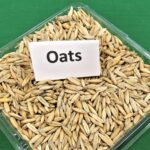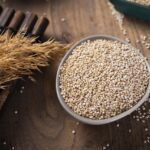Nutritional needs vary as individuals become older, including changes in the amount of calories, vitamins, and minerals needed. An individual’s metabolic rate, appetite, and overall body composition are among the numerous factors that influence their nutritional needs. It is common for elderly individuals to require fewer calories.
Starting from the age of 30, the majority of individuals experience a decline in muscle mass, and those with higher muscle mass will burn a greater number of calories (even when stationary) compared to those with less muscle. The reduction in muscle mass contributes to a decrease in basal metabolic rate.
While losing muscle may result in a decrease in the required calorie intake to maintain your weight, you can balance this out by raising your level of physical activity.
Why Nutrition Is Important as You Age
As you get older, the recommended daily intake levels of both macronutrients and micronutrients, known as the dietary reference intakes (DRIs), are subject to alteration.
Knowing how your nutrient needs change over time is crucial for optimizing their health benefits. Modifying your caloric intake can prevent undesirable weight gain. Additionally, guaranteeing sufficient vitamin, mineral, and hydration intake is essential for maintaining your overall vitality.
How Aging Changes Your Nutritional Needs
As a person grows older, their appetite usually decreases due to a drop in their basal metabolic rate and physical activity. This can create nutritional difficulties as the body still requires the same amount of vitamins and minerals as it did during youth. Some nutrients, such as protein and vitamin D, are even recommended to be consumed in higher quantities. Fitting all those nutrients into a smaller portion of food can be a challenging task.
You Need More Nutrients but Fewer Calories
Metabolism, which is responsible for breaking down nutrients and turning them into energy or storing them as fat, determines the number of calories needed. During adolescence or the twenties, metabolism is usually high. After a person reaches the age of 30, they may start to lose a small amount of muscle and accumulate more fat.
As one ages, there is a tendency for the reduction of muscle mass and a natural slowing of metabolism, which may eventually cause gradual weight gain. Although a pound or two per year may appear insignificant initially, it can accumulate significantly over time.
As individuals age, preserving a consistent body weight (regardless of its value) has been associated with improved cognitive abilities. Additionally, there is a heightened necessity for specific nutrients such as protein, fiber, vitamin D, and calcium.
You Should Note Your Fiber Intake
Older adults require a slightly lower amount of fiber than younger individuals, with women needing a daily intake of 21 grams and men requiring 30 grams.
Only 5% of people get enough fiber according to research, hence it is important to make sure you meet your daily fiber requirements. Adequate fiber consumption offers advantages such as lowering cholesterol, improving gut health, reducing the possibility of obesity and diabetes, and decreasing the likelihood of certain types of cancer.
You Are More Likely to Dehydrate
As one ages, the equilibrium between water and sodium in the body alters, rendering elderly individuals more susceptible to dehydration. The suggested daily water intake for persons above 50 years old ranges from 2.7 to 3.7 liters.
As individuals age, their susceptibility to dehydration rises due to a decline in overall body water content, alteration in the kidneys’ ability to concentrate water and a decrease in the ability to feel thirsty, which results in inadequate water intake.
Furthermore, certain individuals consume drugs that can diminish bodily fluids or modify thirst perception, rendering them more susceptible to dehydration.
You May Need More Protein
Research indicates that the ability of individuals to absorb amino acids from protein decreases with age. However, consuming more protein can aid in guaranteeing sufficient absorption of these amino acids. Muscle health is maintained by essential amino acids, and by consuming larger quantities of protein, muscle health can be directly supported. This may prevent weakening of mobility and strength.
You May Notice a Decrease in Appetite
Several factors contribute to a reduction in appetite in older adults. With age, gastric emptying slows down, resulting in a longer feeling of fullness. Hormonal changes in older individuals influence hunger. Appetite is also affected by psychosocial factors. Changes in food habits and routines after retirement are also a contributing factor.
Older adults may experience a diminished appetite due to various factors such as shifts in hormones, taste and smell perception, and alterations in life situations. Research indicates that older individuals have reduced levels of hunger hormones and elevated levels of satiety hormones, resulting in decreased hunger pangs and faster feelings of fullness.
During a small scale experiment comprising of 11 young people and 11 elderly individuals, scientists discovered that the elderly participants had significantly reduced levels of the hunger hormone ghrelin prior to consuming their meals. Moreover, a number of investigations have identified that the older population has elevated levels of the hormones responsible for achieving satiety, cholecystokinin and leptin.
The sense of smell and taste can be impacted by aging, thereby reducing the attractiveness of foods. Poor appetite can also stem from tooth loss, loneliness, underlying health conditions, and the usage of medications that suppress appetite.
If consuming large meals is a challenge for you, consider breaking them down into smaller servings and spacing them out throughout the day. Alternatively, aim to incorporate nutritious snacks such as almonds, yogurt and boiled eggs into your routine, as they offer ample nutrients and calories.
Reduced appetite is frequently observed in the elderly, and failing to address this can result in weight loss, nutritional deficiencies and detrimental health consequences.
When it comes to bone health, calcium and vitamin D are crucial nutrients. Calcium plays a vital role in the development and upkeep of strong bones, as vitamin D aids in calcium absorption. Regrettably, older individuals tend to have reduced calcium absorption from their diets.
As individuals and animals grow older, research has shown that the gut absorbs a decreased amount of calcium. However, this decline in absorption may be attributed to a lack of vitamin D due to the body becoming less effective at synthesizing it as it ages.
Vitamin D can be synthesized by the body from the cholesterol present in the skin upon exposure to sunlight. Nonetheless, the aging process can lead to the thinning of the skin and subsequently decrease its ability to produce vitamin D. Thus, these modifications may impede the body from attaining sufficient levels of calcium and vitamin D, leading to bone loss and an amplified likelihood of fractures.
In order to combat the impact of aging on one’s vitamin D and calcium levels, it is essential to increase intake of calcium and vitamin D through both dietary sources and supplements. An assortment of food options contain calcium, such as dairy products and dark green, leafy vegetables, while additional excellent sources of calcium can be found.
In the meantime, there are various types of fish, such as salmon and herring, that contain vitamin D. In addition, there are other excellent sources of vitamin D available. Senior citizens may also find it advantageous to supplement their vitamin D intake with options such as cod liver oil.
As you grow older, it becomes crucial to consume ample amounts of calcium and vitamin D, which are vital nutrients for promoting optimal bone health.
Cobalamin or vitamin B12 is a type of vitamin that dissolves in water.
Maintaining healthy brain function and the production of red blood cells heavily rely on vitamin B12. Regrettably, research suggests that approximately 10-30% of individuals aged 50 and above experience decreased absorption of this essential nutrient through their diet.
As time passes, a deficiency of vitamin B12 may develop. The food we consume contains vitamin B12 which is attached to proteins. In order for the body to absorb it, the stomach acid has to detach it from these food proteins.
The likelihood of reduced stomach acid production in older individuals increases, resulting in decreased absorption of vitamin B12 from foods. This may be caused by Atrophic gastritis or other similar conditions. Furthermore, older adults who follow a vegan or vegetarian diet may not consume enough of the vitamin as it is prevalent in animal products like dairy, meat, fish and eggs.
To address this matter, seniors can reap advantages by ingesting foods that are enhanced with vitamin B12 or taking a vitamin B12 supplement. These enriched foods are composed of crystalline vitamin B12, which is not attached to food proteins. As such, individuals with reduced production of stomach acid can still assimilate it.
Aging increases the risk of a vitamin B12 deficiency. Older adults can especially benefit from taking a vitamin B12 supplement or consuming foods fortified with vitamin B12.
There are various nutrients that may prove advantageous as you get older, such as:
- Potassium: A higher potassium intake is associated with a lower risk of high blood pressure, kidney stones, osteoporosis and heart disease, all of which are more common among the elderly .
- Omega-3 fatty acids: Heart disease is the leading cause of death among the elderly. Studies have shown that omega-3 fatty acids can lower heart disease risk factors like high blood pressure and triglycerides.
- Magnesium: Magnesium is an important mineral in the body. Unfortunately, elderly people are at risk of deficiency because of poor intake, medication use and age-related changes in gut function .
- Iron: Deficiency is common in elderly people. This may cause anemia, a condition in which the blood does not supply enough oxygen to the body.
A diet that is abundant in fruits, vegetables, fish, and lean meats can provide numerous nutrients. However, those who adhere to a vegan or vegetarian diet might find it helpful to take a supplement containing iron or omega-3.
While iron can be found in different vegetables, its absorption in plant sources is not as effective as in meat sources. Fish is the primary source of omega-3 fats. Additionally, when you get older, other nutrients that can be advantageous to you include potassium, magnesium, iron, and omega-3 fatty acids.
Tips for Maintaining a Healthy Weight as You Age
As you get older, there are numerous methods for keeping a weight that feels comfortable. Opting for an active lifestyle and being mindful of nutrient-rich foods (while limiting empty calories such as alcohol) are a few ways senior citizens can retain a healthy weight.
Stay Active (or Get Active)
Usually, grown-ups ought to engage in physical activity for half an hour daily, and endeavor to take 10,000 strides every day. Resistance exercises like weight training can augment your muscle mass, thus, accelerating your metabolism and calorie consumption. Aerobic pursuits, such as jogging or walking, burn calories as you move, and they promote good cardiovascular health.
Calculate Your Daily Calorie Needs
An individual’s caloric need is determined by their height, age, sex, current weight and level of physical activity. In order to obtain the appropriate number of calories necessary for their weight gain or loss goals, a digital calorie calculator must be utilized.
Watch What You Eat
In order to remain healthy and prevent sickness, strive for a diet that consists of a diverse range of fruits, vegetables, lean meats, fish, wholesome fats, and fiber-rich foods. Sources of lean protein, including seafood and fish, are both low-calorie and rich in omega-3 fatty acids. Additionally, consume an ample amount of high-fiber foods, such as legumes, non-starchy vegetables, whole fruits, and 100% whole-grain products.
Watch Your Alcohol Intake
Compared to carbohydrates or proteins, alcohol contains more calories per ounce, yet it lacks any other nutritional benefits. In addition, it is frequently mixed with sweetened beverages, which further increases its calorie content.
Side notes
Although aging has various effects on a person’s diet, it is still possible to enjoy eating. To prevent long-lasting illnesses and maintain good health, it is essential to find delectable options that meet your macronutrient and micronutrient requirements. If you are uncertain about the ideal dietary regimen for you, consult a healthcare expert who can provide personalized recommendations and strategies.
The process of getting older is associated with alterations that may increase the likelihood of having inadequate levels of calcium, vitamin D, vitamin B12, iron, magnesium, and various other essential nutrients. Additionally, it could diminish your capacity to perceive signals of appetite and thirst.
Fortuitously, there are measures you can employ to sidestep these inadequacies. Be deliberate about keeping track of your hydration and nourishment, consume a diverse array of foods that are rich in nutrients, and weigh the option of incorporating a supplement. These courses of action can assist you in combating deficiencies and maintaining your well-being as you age.



